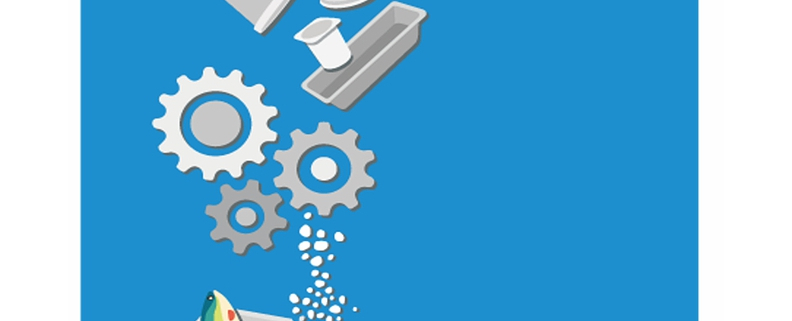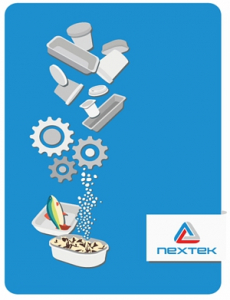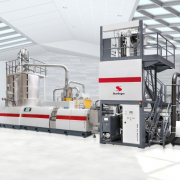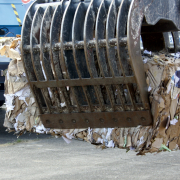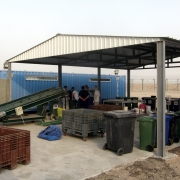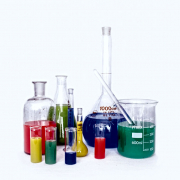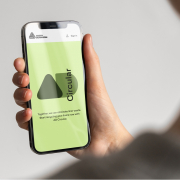Nextek Limited: Far From Sorted
According to a global analysis by The PEW Trusts, titled Breaking the Plastic Wave, one should be able to cut annual flows of plastic into the ocean by about 80 percent in the next 20 years by applying existing solutions and technologies.
They continue to point out that no single solution is going to achieve this goal; instead, the world needs to take immediate, ambitious, and concerted actions. The stats are terrifying since an estimated 11 million metric tons of plastic waste enter the ocean every year. Without immediate and sustained action, that amount will nearly triple by 2040 to 29 million metric tons per year. That equates to dumping 50 kilograms of plastic on every meter of coastline around the world. The report makes compelling reading, and one of the many takeout points to the issue that one cannot simply ban plastic.
What is needed is a balance between improving recycling practices, expanding waste collection, and ensuring that disposal processes prevent plastic leakage. A surge of new enterprises lining up to tackle these various challenges is already turning up. Yet, there is a pervasive and unhelpful misconception that relates to sorting.
Sorted, then what?
With the current focus on innovative sorting processes that can identify additional factors such as food-grade or non-food-grade besides the polymer, it is vital to emphasize that sorting alone will not solve our recycling challenges. Sorting is the first part of the whole process. It is a vital step in the journey towards a true circular economy. However, society needs to go beyond merely sorting waste to make any meaningful shift in how the world manages any short-lived materials to minimize and reduce current waste levels.
More thinking needs to be dedicated to making products that can be recycled simply and productively by recycling businesses. That means re-configuring “difficult to recycle” packaging and optimizing the composition, such as low or no pigmentation, mono construction through to readily removable adhesives and labels and benign inks.
If multiple sub-categories of packaging are created in response to the perception that sorting will have the capacity to create narrower fractions of materials, then the economics will diminish and issues of cross-contamination will increase. Ideally, the range of plastics used for packing should be standardized to the “big four” LDPE, HDPE, PP and PET. As organizations seek to avoid the forthcoming hefty plastic packaging taxes that are looming, sorting appears to be grabbing the headlines as the only step required to go forward.
Sorting non-recyclable packaging might be helpful, but what then? The debate needs to center around which type of complete recycling processes and products will deliver the best results.
Wasting waste
Ultimately, regardless of how waste is identified and sorted, the world will still end up with a pile of well-sorted plastic that is of low value unless it can be properly re-used, and this requires cutting-edge washing, extrusion, filtration and decontamination.
To make better use of plastic packaging waste the world needs to help the recyclers turn it back into high quality recycled mono-polymers that can be re-used in new products. Brand owners and retailers are desperately short of food-grade recycled plastic of every type, and effective design-for-recycling can help everyone in the circular economy.
Reduce Virgin
Any organization involved in FMCG (fast-moving consumer goods) knows full well that they are going to have to drastically curb their dependence on virgin plastic if they are to meet their highly publicized recycled content targets and comply with the new plastic packaging laws. To achieve this will require having a vast and new supply of high quality and food-grade recycled plastics including PET, HDPE, LDPE and PP to turn into the bottles, tubs, pots and trays they are using since these plastics are the largest volume plastics used globally.
Whether one opts for chemical markers (such as fluorescent marker based PRISM) or digital watermarks, the very fact that the sorting and identification processes can now be enhanced is a key step in the right direction. However, the process does not stop there – otherwise potentially valuable end of first-use materials will be wasted. The circle needs to be completed.
Half the solution
Decontamination is the next crucial phase, to be able to turn our well sorted waste into valuable recyclates such as food-grade rPP, food-grade rHDPE and food-grade PET. Achieving the vision of near-zero plastic waste requires technological advances, brave new thinking, innovative business models as well as accelerating upstream innovation.
In the case of PP, it has taken eight years of intense research and commercial trials to achieve a powerful and unique decontamination process for food-grade recycled PP. This has resulted in PPristine that is soon going for EFSA (European Food Safety Authority) and USFDA (United States Food and Drug Administration) approval.
PPristine is the missing link that will finally close the loop on food-grade recycled PP that has been “missing-in-action” to date. The NEXTLOOPP process launched in October 2020 and is poised to take PP out of the waste stream into the circular economy. In Europe PP accounts for 10 million t/yr (tons/year) with 40 percent (4 Million t/yr) used for consumer packaging, which, largely goes un-recycled or to low value applications.
As of January 2021, EU legislation has started applying a 800 Euro a ton charge for single use plastics with less than 30 percent recycled content, surely this is yet another motivating factor for brand owners to re-address their recycling commitments.
Unlocking the full value of our plastic materials will go a long way towards helping organizations honor their commitment to increase the level of recycled material they use in their packaging – better still this kind of coherent recycling strategy will have enormous impact on reducing post-consumer waste.
The world needs to focus on closing the plastic loop by taking each facet of the process from collection and sorting through to decontamination to ensure a transformational shift occurs. The required technologies already exist and can tip the balance in the right direction. However, it is crucial to shift beyond fixating on one element of the solution and embrace the whole.
Source: Professor Edward Kosior, Nextek Ltd (UK, March 10, 2021)

